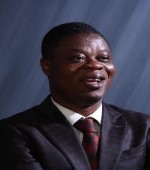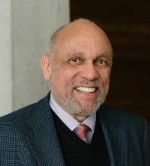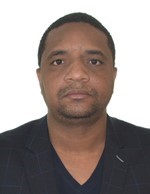FEATURED PAPER
By Lavagnon Ika, PhD[1]
Telfer School of Management,
University of Ottawa,
Jan Saint-Macary, PhD
Département des sciences administratives,
Université du Québec en Outaouais, Québec, Canada
Alassane Bandé, MSc
Département des sciences économiques et administratives
Université du Québec à Chicoutimi, Québec, Canada
Abstract
Stakeholders are undeniably a key component in the success or demise of projects. This article proposes an instrumental approach for a more effective management of stakeholders, by taking into account the rational as well the political aspects of projects. Using an explicit theoretical framework and illustrations from two real-life cases, it builds on four key questions to identify, assess, engage, and manage stakeholders on an ongoing basis. This novel approach focuses on the profiles of the stakeholders and the distinction between their stated positions and their real interests. It allows for the management of existing stakeholders and the inclusion of new ones, as required for the success of the project. By partnering with stakeholders and focusing on satisfying their real —but often veiled— interests, the project can be co-produced, resulting in a “win-win” for all.
Key words: Stakeholders, Stakeholder Management, Trust, Project management, New Product Development
The Challenge of Mobilizing Stakeholders in Projects
Obama, “No, you can’t”.
“Barack Obama is no longer a prophet in Chicago[2]”. This newspaper headline describes the unexpected resistance faced by Obama’s Presidential library project in Chicago. Many local residents mobilized and took to the streets to express their concern about the gentrification of their neighbourhood.
The project was quite ordinary and should have gone smoothly. It is traditional for outgoing presidents to build a library to house their archives, so Obama’s project was not unexpected. Though he was born in Honolulu, Obama had partnered with the University of Chicago and chosen to build his library on the South Side of the city. That location might have seemed ideal to his team: the neighbourhood is 93% African-American, and it was where Obama worked as a community organizer, made his debut in politics, and had received overwhelming support in the elections of 2008 and 2012. On the face of it, the library was in the perfect place, and should have been seen as a boon to the community.
Despite broad support for Obama himself in the South Side of Chicago, the project met with strong opposition from the African-American community. “Stakeholders”, in Freeman’s (1984) broad definition, mobilized against it, including neighborhood associations and tenant unions. Professors and staff at the University of Chicago described the project as socially regressive[3]. Other opponents also argued that the presidential complex would only accelerate a gentrification of the area, and denounced the support of the mayor’s office and the University. Worse, some even accused Obama of “ethnic cleansing”. In addition, there were grievances about the exorbitant cost of the project and the large parcel of land needed to build it, offered to Obama by Chicago City Hall and Mayor Rahm Emanuel, President Obama’s former chief of staff.
Evidently, there were shortcomings both in the identification of these stakeholders and in the assessment of their expectations and interests. Considering the support given to presidential candidate Obama, the designers of the project wrongly assumed they knew the stakeholders well and took their support for granted. For the South Side community, this project presented different stakes than the election and reelection of Obama: “Yes you can”, at the national level, “No, you can’t” at the municipal level.
The project managers erred in assuming that the Chicago community would support anything undertaken by Obama. Clearly, such support was not unconditional. “(While) we trusted him enough to elect him to the White House, not once but twice, we wouldn’t trust him or Michelle to do good in their own community”, said one local citizen. The well-respected Reverend Finley Campbell opined that Barack Obama’s presidency brought positive change for the black elites and bourgeoisie, but that its presidency had failed the working class.
Negative reactions to this project illustrate many of the stakeholder engagement issues raised in scientific and professional literature (Cleland, 1986; Littau, Jujagiri, & Adlbrecht, 2010; PMI, 2017; Winch, 2017). While gaps between the interests of a project and its stakeholders are not uncommon, it is possible to adopt a proactive, rather than reactive, approach in managing stakeholders and meeting their expectations. It is also possible to channel stakeholder interest and influence into active participation in the project, and thus achieve better results for all (Eskerod & Huemann, 2014).
Some basic questions must be addressed to foster stakeholder collaboration. In this article, we submit that exploring these questions can serve as a concrete approach to project implementation (Frooman, 1999; Carroll & Nasi, 1997; Pinto, Slevin, & English, 2009). Next, we briefly present our theoretical benchmarks and then we propose four key questions for engaging stakeholders.
More…
To read entire paper, click here
How to cite this paper: Ika, L.; Saint-Macary, J.; Bandé, A. (2020). Mobilizing Stakeholders for Project Success; PM World Journal, Vol. IX, Issue VIII, August. Available online at https://pmworldlibrary.net/wp-content/uploads/2020/07/pmwj96-Aug2020-Ika-Saint-Macary-Bande-mobilizing-stakeholders-for-project-success.pdf
About the Authors

Lavagnon Ika, PhD
Ontario, Canada
![]()
Lavagnon Ika, MSc, PhD is Professor of Project Management and former Director of the MSc Program in Management at the Telfer School of Management at the University of Ottawa. For the past 20 years, he has taught project management around the world. He is an Associate Editor of the International Journal of Project Management and a member of the Academic Boards of the international project management associations PMI and IPMA. In the summer of 2020, he will be a Fellow of the World Bank. Professor Ika’s research has been published in prestigious journals such as World Development, IEEE Transactions on Engineering Management, Production Planning and Control, Transportation Research Part A: Policy and Practice, International Journal of Project Management, and Project Management Journal. His work has earned him three Emerald Publishing House Awards of Excellence (Best Reviewer Award in 2018, Outstanding Paper in 2017, and Highly Commended Paper Award in 2011), as well as two IPMA Awards of Excellence (Research Award in 2017 and Contribution of a Young Researcher Award in 2012). He was awarded the Telfer Innovative Researcher Award in 2017. Several of his articles have received praise from practitioners. Email: ika@telfer.uottawa.ca

Jan Saint-Macary, PhD
Québec, Canada
![]()
Jan Saint-Macary, MBA, Ph.D. is Professor of Strategy and Management, and Director of the Department of Administrative Sciences at the Université du Québec en Outaouais. He is a graduate of Concordia and McGill Universities in Canada and Drew University in the United States. He held various management positions at the First National State Bank of New Jersey in the United States, and then at Royal Bank of Canada in Montreal. As a consultant and trainer, he has worked in the service and industrial sectors in Canada, Europe, Africa, and the Caribbean. His research interests and publications focus on corporate strategy, project management, decision making and financial institutions. He is the co-author of a highly cited article On Opening Decision Making: The View from the Black Stool, written in collaboration with Henry Mintzberg, a leading expert in the field. He is currently writing a book on the political and psychosocial management of projects with Lavagnon Ika. Email: Jan.Saint-Macary@uqo.ca

Alassane Bandé, MSc
Québec, Canada
![]()
![]()
Alassane Bandé, MSc, is a PhD candidate in project management at the Université du Québec à Chicoutimi. As a civil servant, he has worked in several ministerial departments in his country, Burkina Faso, as a financial services administrator. As such, he assisted the various ministries and institutions in the management of their public finances. He has participated in several missions to monitor and evaluate development projects in his country. His work experience has led him to undertake research work in the field of project management in general, and international development projects in particular. His doctoral thesis focuses on the involvement of beneficiaries in international development projects and explores the perspectives of supervisors, coordinators, and beneficiaries. He works under the supervision of Professors Ouedraogo and Ika. Email: alassane.bande1@uqac.ca
[1] Corresponding author
[2] Translation of a French-language article available at: http://www.lemonde.fr/ameriques/article/2018/04/03/obama-n-est-plus-prophete-a-chicago_5279795_3222.html#gCdc938i05IZtcF4.99
[3] Washington Times, February 28, 2018 available at: https://www.washingtontimes.com/news/2018/feb/28/obama-cheers-gentrification-as-plans-for-president/









